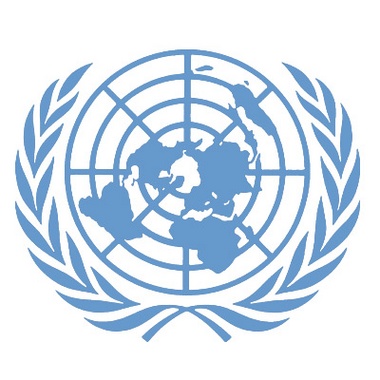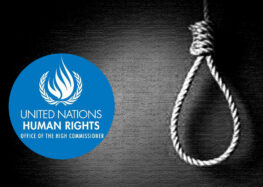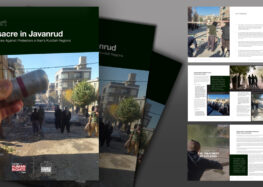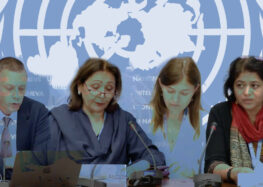Resolution on the Human Rights Situation in Iran
 United Nations A/C.3/63/L.40
United Nations A/C.3/63/L.40
General Assembly
Distr.: Limited
30 October 2008
Original: English
08-58122 (E) 041108
*0858122*
Sixty-third session
Agenda item 64 (c)
Promotion and protection of human rights: human rights situations and reports of special rapporteurs and representatives Andorra, Australia, Austria, Belgium, Bulgaria, Canada, Croatia, Cyprus, Czech Republic, Denmark, Estonia, Fiji, Finland, France, Germany, Greece, Hungary, Iceland, Ireland, Israel, Italy, Latvia, Liechtenstein, Lithuania, Luxembourg, Malta, Micronesia (Federated States of), Monaco, New Zealand, Netherlands, Norway, Palau, Poland, Portugal, Republic of Moldova, Romania, Slovakia, Slovenia, Spain, Sweden, United Kingdom of Great Britain and Northern Ireland and United States of America: draft resolution
Situation of human rights in the Islamic Republic of Iran
The General Assembly,
Guided by the Charter of the United Nations, as well as the Universal Declaration of Human Rights,1 the International Covenants on Human Rights and other international human rights instruments, Recalling its previous resolutions on the situation of human rights in the Islamic Republic of Iran, the most recent of which is resolution 62/168 of 18 December 2007,
1. Takes note of the report of the Secretary-General on the situation of human rights in the Islamic Republic of Iran,3 submitted pursuant to General Assembly resolution 62/168, which highlights a broad range of serious human rights violations, legal and institutional gaps and impediments to the protection of human rights and which discusses some positive developments in a few areas;
2. Expresses its deep concern at serious human rights violations in the Islamic Republic of Iran relating to, inter alia:
(a) Torture and cruel, inhuman or degrading treatment or punishment, including flogging and amputations;
(b) The continuing high incidence of executions carried out in the absence of internationally recognized safeguards, including public executions and executions of juveniles;
(c) Persons in prison who continue to face sentences of execution by stoning;
(d) Arrests, violent repression and sentencing of women exercising their right to peaceful assembly, a campaign of intimidation against women’s human rights defenders, and continuing discrimination against women and girls in law and in practice;
(e) Increasing discrimination and other human rights violations against persons belonging to religious, ethnic, linguistic or other minorities, recognized or otherwise, including, inter alia, Arabs, Azeris, Baluchis, Kurds, Christians, Jews, Sufis and Sunni Muslims and their defenders, and, in particular, attacks on Baha’is and their faith in State-sponsored media, increasing evidence of efforts by the State to identify and monitor Baha’is, preventing members of the Baha’i faith from attending university and from sustaining themselves economically, and the arrest and detention of seven Baha’i leaders without charge or access to legal representation;
(f) Ongoing, systemic and serious restrictions of freedom of peaceful assembly and association and freedom of opinion and expression, including those imposed on the media, Internet users and trade unions, and increasing harassment, intimidation and persecution of political opponents and human rights defenders from all sectors of Iranian society, including arrests and violent repression of labour leaders, labour members peacefully assembling and students, in particular with regard to the 2008 Majles electoral process;
(g) Severe limitations and restrictions on freedom of religion and belief, including the provision in the proposed draft penal code that sets out a mandatory death sentence for apostasy;
(h) Persistent failure to uphold due process of law rights, and violation of the rights of detainees, including the systematic and arbitrary use of prolonged solitary confinement;
3. Calls upon the Government of the Islamic Republic of Iran to address the substantive concerns highlighted in the report of the Secretary-General and the specific calls to action found in previous resolutions of the General Assembly, and to respect fully its human rights obligations, in law and in practice, in particular:
(a) To eliminate, in law and in practice, amputations, flogging and other forms of torture and other cruel, inhuman or degrading treatment or punishment;
(b) To abolish, in law and in practice, public executions and other executions carried out in the absence of respect for internationally recognized safeguards;
(c) To abolish, pursuant to its obligations under article 37 of the Convention on the Rights of the Child 4 and article 6 of the International Covenant on Civil and Political Rights, 5 executions of persons who at the time of their offence were under the age of 18;
(d) To abolish the use of stoning as a method of execution;
(e) To eliminate, in law and in practice, all forms of discrimination and other human rights violations against women and girls;
(f) To eliminate, in law and in practice, all forms of discrimination and other human rights violations against persons belonging to religious, ethnic, linguistic or other minorities, recognized or otherwise, to refrain from monitoring individuals on the basis of their religious beliefs, and to ensure that access of minorities to education and employment is on par with that of all Iranians;
(g) To implement, inter alia, the 1996 report of the Special Rapporteur on religious intolerance,6 which recommended ways in which the Islamic Republic of Iran could emancipate the Baha’i community;
(h) To end the harassment, intimidation and persecution of political opponents and human rights defenders, including by releasing persons imprisoned arbitrarily or on the basis of their political views;
(i) To uphold due process of law rights and to end impunity for human rights violations;
4. Notes the positive although limited gains, developments and steps discussed in the report of the Secretary-General, but remains concerned that many such steps have yet to be implemented in law or in practice;
5. Further calls upon the Government of the Islamic Republic of Iran to redress its inadequate record of cooperation with international human rights mechanisms by, inter alia, reporting pursuant to its obligations to the treaty bodies of the instruments to which it is a party and cooperating fully with all international human rights mechanisms, including facilitating visits to its territory of special procedures mandate holders, and encourages the Government of the Islamic Republic of Iran to continue exploring cooperation on human rights and justice reform with the United Nations, including the Office of the United Nations High Commissioner for Human Rights;
6. Requests an update from the Secretary-General on the situation of human rights in the Islamic Republic of Iran, including its cooperation with international human rights mechanisms, at its sixty-fourth session;
7. Decides to continue its examination of the situation of human rights in the Islamic Republic of Iran at its sixty-fourth session under the item entitled “Promotion and protection of human rights”.
Vote on Situation of Human Rights in Iran
The draft resolution on the situation of human rights in Iran (document A/C.3/63/L.40) was approved by a recorded vote of 70 in favour to 51 against, with 60 abstentions, as follows:
In favour: Albania, Andorra, Argentina, Australia, Austria, Bahamas, Belgium, Belize, Bosnia and Herzegovina, Botswana, Bulgaria, Canada, Chile, Costa Rica, Croatia, Cyprus, Czech Republic, Denmark, El Salvador, Estonia, Fiji, Finland, France, Germany, Greece, Honduras, Hungary, Iceland, Israel, Italy, Japan, Kiribati, Latvia, Liberia, Liechtenstein, Lithuania, Luxembourg, Malta, Marshall Islands, Mexico, Micronesia (Federated States of), Monaco, Montenegro, Nauru, Netherlands, New Zealand, Norway, Palau, Panama, Peru, Poland, Portugal, Republic of Moldova, Romania, Saint Lucia, Samoa, San Marino, Slovakia, Slovenia, Spain, Sweden, Switzerland, The former Yugoslav Republic of Macedonia, Timor-Leste, Tonga, Tuvalu, Ukraine, United Kingdom, United States, Vanuatu.
Against: Afghanistan, Algeria, Armenia, Azerbaijan, Bahrain, Bangladesh, Belarus, China, Comoros, Cuba, Democratic People’s Republic of Korea, Egypt, Eritrea, Gambia, Guinea, Guinea-Bissau, India, Indonesia, Iran, Kazakhstan, Kuwait, Kyrgyzstan, Lebanon, Libya, Malawi, Malaysia, Mauritania, Myanmar, Nicaragua, Niger, Oman, Pakistan, Qatar, Russian Federation, Saudi Arabia, Senegal, Serbia, Somalia, South Africa, Sri Lanka, Sudan, Syria, Tajikistan, Togo, Tunisia, Turkmenistan, Uzbekistan, Venezuela, Viet Nam, Yemen, Zimbabwe.






